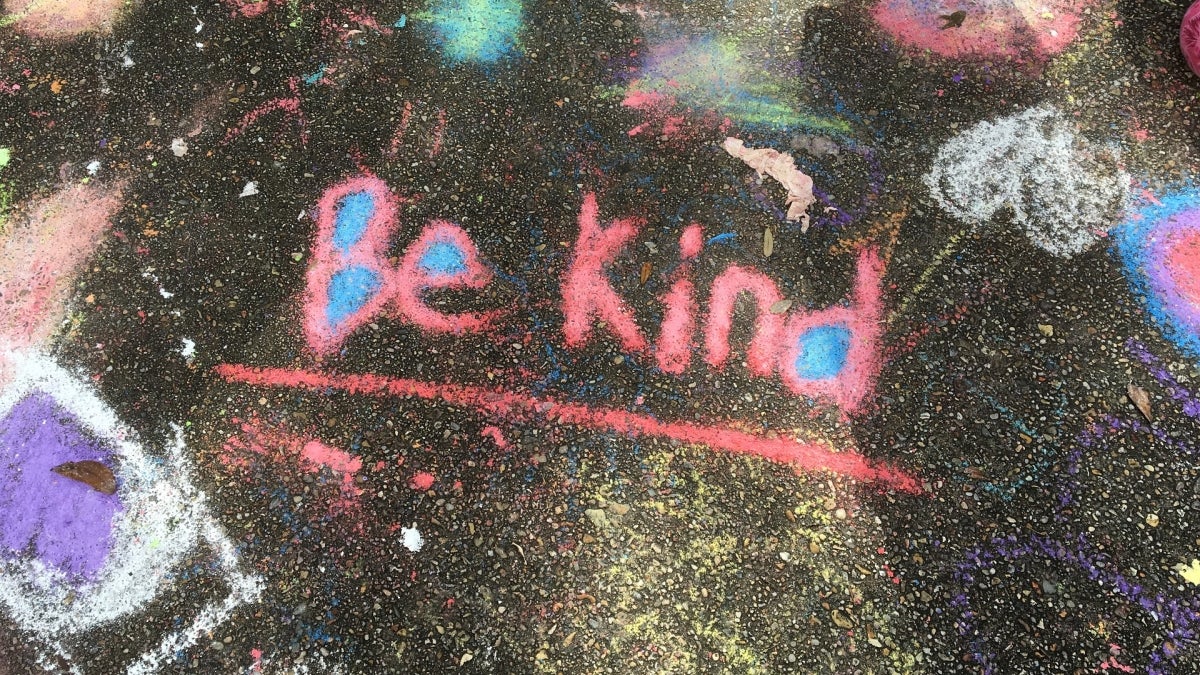A smile, an encouraging word, a warm greeting, a small note of thanks — all solid examples of kindness.
For years, the world of science has researched if altruistic behaviors can have a positive impact on physical and mental health: specifically, if they can lead to reductions in stress, anxiety, blood pressure and cholesterol.
ASU’s Center for Mindfulness, Compassion and Resilience believes kindness is not only good for our health but is wired into our DNA. The center heavily promotes kindness and encourages it as a daily practice. A good day to start might be World Kindness Day on Nov. 13.
Center Manager Tiara Cash spoke to ASU Now about the impact of kindness and how mindfulness can improve our lives.
Tiara Cash
Question: Does showing kindness have an impact on our physical or mental health? Does science back this up?
Answer: The short answer is yes! Have you ever noticed that doing something good for someone else gives you joy and makes you feel good, too? Well, studies have shown that being kind has an actual effect on our brains and bodies. Acts of kindness are linked to increased serotonin, which promotes calmness and happiness, and increased oxytocin, commonly referred to as the “love hormone,” which promotes social bonds and is linked to improving heart health and blood pressure. Kindness and compassion toward others has also been linked to decreased anxiety and stress. Decreased stress means a lower chance of overall illness, blood pressure and cholesterol.
There has also been research done in the fields of psychology, neuroscience and economics on the science of giving and acts of kindness, exploring our thoughts, reactions and behaviors around being kind and giving to others. It is important to remember that giving for selfish reasons does not have the same long-term effects that altruistic behaviors like acts of kindness and compassion do. Although giving selfishly may have temporary benefits, researchers have found that the extrinsic motivations of actions like these crowd our intrinsic motivations, which keep us innovative, autonomous and self-sustained. Be kind and give from the heart.
Q: What about those on the receiving end of kindness? Do they experience any health benefits?
A: Have you ever heard the phrase kindness is contagious? Well, this folklore phrase is actually based in some truth. Those who witness kindness — either through receiving kindness or watching someone else be kind — are actually inspired to act kind, and in some cases without even having to be in contact with the person that is being kind in the first place. In a collection of studies, behavioral scientists found that participants of interventions who believed that other individuals were being kind were likely to be more generous themselves. In simple terms, this is what’s called kindness contagion. If we think back to the health benefits outlined, this means that those who are on the receiving end of kindness or even witness kindness are more likely to have the health benefits of lowered stress, lowered anxiety and increased “feel good” hormones.
Q: Is this along the lines of what is being taught at ASU’s Center for Mindfulness, Compassion and Resilience?
A: We are biologically wired to show kindness and compassion. However, so often we forget how important this is to our well-being that we practice these skills. Here at the center, we work on further developing these traits through the skills of mindfulness and compassion to create habits of kindness. Mindfulness is one of the ways that we invoke kindness by repeating phrases or mantras and affirmations to assist the brain in creating pathways for positive thoughts of ourselves and acting through prosocial behaviors for others. The wonderful thing about kindness and positive emotion is that it’s on a feedback loop in our brains, meaning that we experience the joy of kindness and compassion and our brains store that positive emotion alerting us again to receive that positive emotion when we act kindly in the future. In this way, the more we practice acts of kindness, the more we create habits of kindness and feelings of positive emotion.
Q: What suggestions would you give someone looking to create habits of kindness and compassion?
A: The good news is there are plenty of ways to help boost your acts of kindness daily. A quick way to begin is to start with yourself. Self-compassion or self-kindness is a great way to boost healthy self-esteem and resilience while also igniting that kindness feedback loop I mentioned earlier. Practice loving-kindness meditation as one of your daily rituals as you begin to create a habit of kindness. You can find a version of this on our website under resources. Other ways to promote kindness of self and others: Start a gratitude journal and create a habit of writing down two things you are grateful for each day; intentionally smile more at people who you see walking the halls at work or on campus; and compliment a co-worker or give someone you appreciate a thank you note one day this week.
Finally, in any circumstance or situation that could use reframing to help you get through frustration or anger, remember we are all human and make mistakes. Sometimes just softening your perception of someone else is also an act of kindness and if we can remember that kindness is contagious, we can begin to see changes in our communities and cultures.
More Health and medicine

ASU offers bilingual counseling to Spanish speakers
Arizona is one of the five states in the nation with the highest percentage of Hispanic residents, according to the U.S. Department of Health and Human Services Office of Minority Health, and …

College of Health Solutions launches first-of-its-kind diagnostics industry partnership to train the workforce of tomorrow
From 2007 to 2022, cytotechnology certification examinees diminished from 246 to 109 per year. With only 19 programs in the United States, the cytology workforce that stands at the front line of…

ASU's Roybal Center aims to give older adults experiencing cognitive decline more independence
For older people living alone and suffering from cognitive decline, life can be an unsettling and sometimes scary experience.Arizona State University is out to improve that experience.Two projects…



